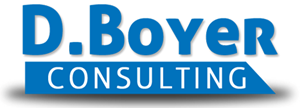Business is mostly conducted via email or phone communications.
Office hours 10:00 a.m. to 6:00 p.m, Mon. - Thurs., and 10:00 a.m. to 2:00 p.m. on Fridays.
SEND EMAIL INQUIRIES DIRECTLY TO:
Dawn.Boyer@me.com
Business is mostly conducted via email or phone communications.
Office hours 10:00 a.m. to 6:00 p.m, Mon. - Thurs., and 10:00 a.m. to 2:00 p.m. on Fridays.
SEND EMAIL INQUIRIES DIRECTLY TO:
Dawn.Boyer@me.com
Business is mostly conducted via email or phone communications.
Office hours 10:00 a.m. to 6:00 p.m, Mon. - Thurs., and 10:00 a.m. to 2:00 p.m. on Fridays.
SEND EMAIL INQUIRIES DIRECTLY TO:
Dawn.Boyer@me.com
Five Vital Resume Elements.
August 19th, 2025 by Dawn Boyer
There are five elements often overlooked in writing a professional resume. I am not referring to mandatory hard-core data such as telephone number, email address, education, backwards chronologically listed job descriptions, and a bulleted list of years of general job experience. The five unique writing elements that are vital within a resume to appeal to recruiters and hiring managers are 1) Readability, 2) Objectivity, 3) Metrics, 4) Keywords, and 5) Brevity.
Readability uses simple bullets and clear language to draw the recruiter’s attention to key achievements. Write the resume bullets to describe what you physically did in the position and on a sixth-grade reading level. Job task bullets should start with an action verb, e.g., manage, supervise, develop, analyze, research, or implement. Avoid passive and vague verbs, e.g., picked to lead, spearheaded, or assisted with. A resume has no place for passive writing terminology.
You want to energize recruiters and make them excited to find your strengths and talents. Each major task noted within a job description should be attached to a ‘result.’ For example: Developed a new protocol for manufacturing, resulting in a reduction of labor hours by X%, to produce three high-revenue products, increasing profits by X%.
Objectivity uses documentable descriptions to focus on what can be proven to happen. For example, “Provided distinct responsibility and authority to …” doesn’t tell the recruiter what you physically did and is a subjective (unprovable) statement. Substitute “Managed, monitored, evaluated, and coordinated company quality assurance program, resulting in meeting and exceeding ISO standards audit.” This bullet is provable and is likely heavily documented within company archives.
Metrics make a resume ‘pop’ with documentable proof of skills and results. If a salesperson states, “I was the top salesperson of the year…” that implies they did a great job, but if they are the only salesperson, that statement has no value. Add metrics to prove your skills. For example: “Conducted target marketing, resulting in sales of ~350 XYZ products annually, 50-100 contracts, and >$20M in revenues in FY2024.” Another example, “Directed sales, retention, and customer service, resulting in a 7% increase in customer retention (81% to 88% in 2015), contributing to ~5% annual revenue growth.”
Keywords are the lifeblood of a resume. Those words are significant as they are elemental to your career and recognizable as a valuable skill you are offering to future employers. Do not use ‘generic’ vague words such as pioneered, spearheaded, comprehensive or all, leadership, support – these are vague, require further explanation, and likely have no immediate context in the tasking for the job. Substitute the terms ‘developed’ for pioneered, ‘implemented and led’ for spearheaded, substitute a metric ‘100% compliance to XYZ regulation’ in lieu of comprehensive, and ‘managed’ or ‘supervised’ for leadership.
Brevity means using fewer, better, or more meaningful words. The words ‘the,’ ‘and,’ and ‘that’ are a few of the most overused words in the English language. These filler words are often unnecessary to get ideas across if using action verbs in ‘non-full’ sentences in a resume. Instead of writing, “I mentored and trained new hires and the team members to their job tasks and responsibilities as well as showed them how to use their software and equipment,” write a succinct sentence fragment: “Trained 15 newly hired insurance adjusters over two years” as an alternative bullet.
These resume writing elements can also be used as a quality assurance review for points in any business correspondence. Those who write buzzwordy or vague conversational-tone memos, briefs, reports, and emails should consider eliminating the heavy or vague wording and subscribe to the Readability, Objectivity, Metrics, Keywords, and Brevity rule.
These writing elements make it easier for the reader to glance over, absorb the basics, and draw conclusions based on metrics and stated facts. These elements also make it much easier for a resume review, analysis, identification, and decision for a qualified candidate to be further considered by recruiters.
Dawn Boyer, Ph.D., owner of D. Boyer Consulting, provides human resources, resume writing, editing, books-on-demand publishing, and consulting. Reach her at: Dawn.Boyer@DBoyerConsulting.com or http://dboyerconsulting.com.
Readers Comments
Five Vital Resume Elements.
August 19th, 2025 by Dawn Boyer
There are five elements often overlooked in writing a professional resume. I am not referring to mandatory hard-core data such as telephone number, email address, education, backwards chronologically listed job descriptions, and a bulleted list of years of general job experience. The five unique writing elements that are vital within a resume to appeal to recruiters and hiring managers are 1) Readability, 2) Objectivity, 3) Metrics, 4) Keywords, and 5) Brevity.
Readability uses simple bullets and clear language to draw the recruiter’s attention to key achievements. Write the resume bullets to describe what you physically did in the position and on a sixth-grade reading level. Job task bullets should start with an action verb, e.g., manage, supervise, develop, analyze, research, or implement. Avoid passive and vague verbs, e.g., picked to lead, spearheaded, or assisted with. A resume has no place for passive writing terminology.
You want to energize recruiters and make them excited to find your strengths and talents. Each major task noted within a job description should be attached to a ‘result.’ For example: Developed a new protocol for manufacturing, resulting in a reduction of labor hours by X%, to produce three high-revenue products, increasing profits by X%.
Objectivity uses documentable descriptions to focus on what can be proven to happen. For example, “Provided distinct responsibility and authority to …” doesn’t tell the recruiter what you physically did and is a subjective (unprovable) statement. Substitute “Managed, monitored, evaluated, and coordinated company quality assurance program, resulting in meeting and exceeding ISO standards audit.” This bullet is provable and is likely heavily documented within company archives.
Metrics make a resume ‘pop’ with documentable proof of skills and results. If a salesperson states, “I was the top salesperson of the year…” that implies they did a great job, but if they are the only salesperson, that statement has no value. Add metrics to prove your skills. For example: “Conducted target marketing, resulting in sales of ~350 XYZ products annually, 50-100 contracts, and >$20M in revenues in FY2024.” Another example, “Directed sales, retention, and customer service, resulting in a 7% increase in customer retention (81% to 88% in 2015), contributing to ~5% annual revenue growth.”
Keywords are the lifeblood of a resume. Those words are significant as they are elemental to your career and recognizable as a valuable skill you are offering to future employers. Do not use ‘generic’ vague words such as pioneered, spearheaded, comprehensive or all, leadership, support – these are vague, require further explanation, and likely have no immediate context in the tasking for the job. Substitute the terms ‘developed’ for pioneered, ‘implemented and led’ for spearheaded, substitute a metric ‘100% compliance to XYZ regulation’ in lieu of comprehensive, and ‘managed’ or ‘supervised’ for leadership.
Brevity means using fewer, better, or more meaningful words. The words ‘the,’ ‘and,’ and ‘that’ are a few of the most overused words in the English language. These filler words are often unnecessary to get ideas across if using action verbs in ‘non-full’ sentences in a resume. Instead of writing, “I mentored and trained new hires and the team members to their job tasks and responsibilities as well as showed them how to use their software and equipment,” write a succinct sentence fragment: “Trained 15 newly hired insurance adjusters over two years” as an alternative bullet.
These resume writing elements can also be used as a quality assurance review for points in any business correspondence. Those who write buzzwordy or vague conversational-tone memos, briefs, reports, and emails should consider eliminating the heavy or vague wording and subscribe to the Readability, Objectivity, Metrics, Keywords, and Brevity rule.
These writing elements make it easier for the reader to glance over, absorb the basics, and draw conclusions based on metrics and stated facts. These elements also make it much easier for a resume review, analysis, identification, and decision for a qualified candidate to be further considered by recruiters.
Dawn Boyer, Ph.D., owner of D. Boyer Consulting, provides human resources, resume writing, editing, books-on-demand publishing, and consulting. Reach her at: Dawn.Boyer@DBoyerConsulting.com or http://dboyerconsulting.com.












